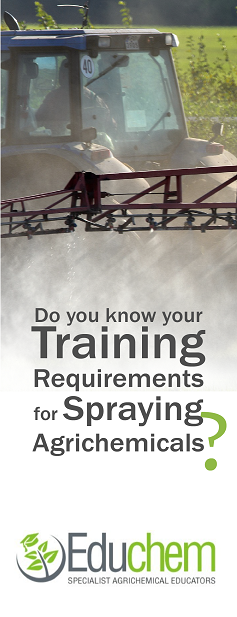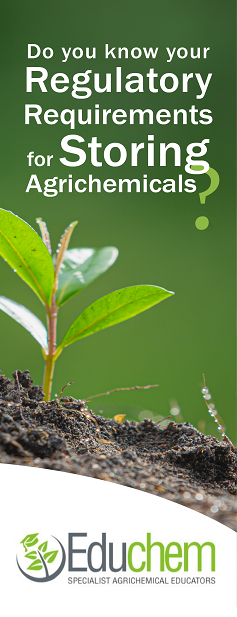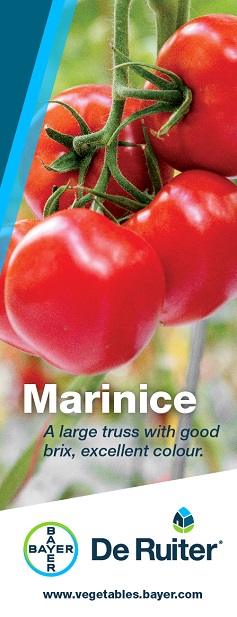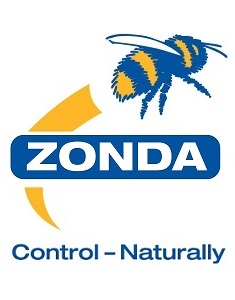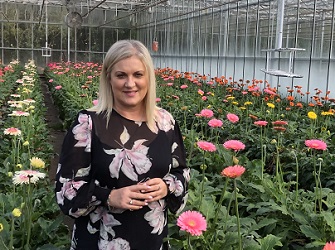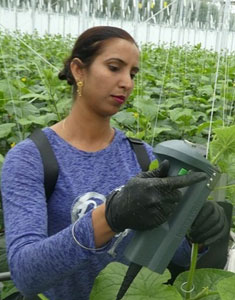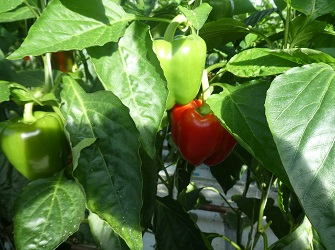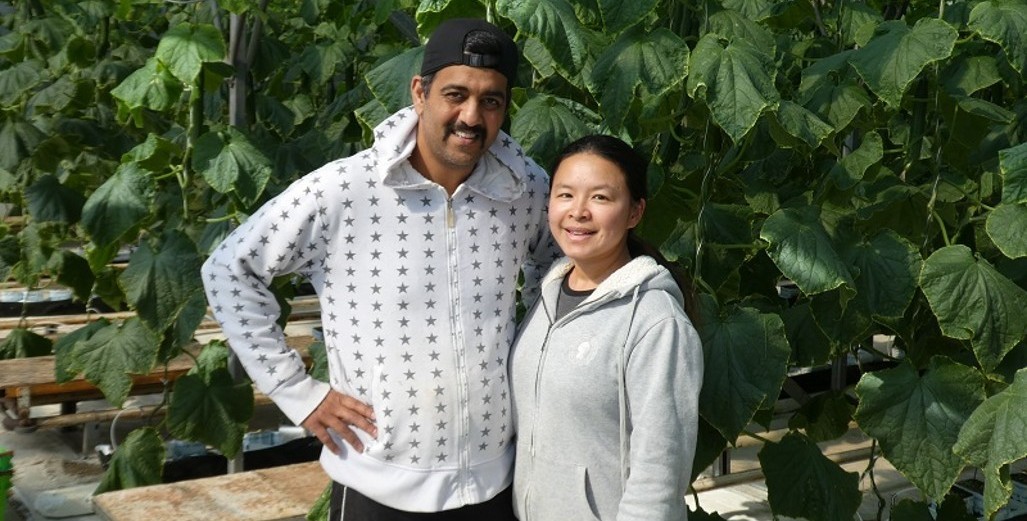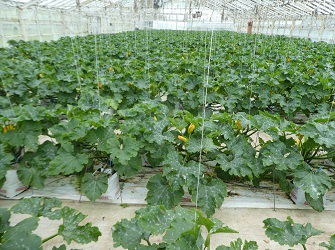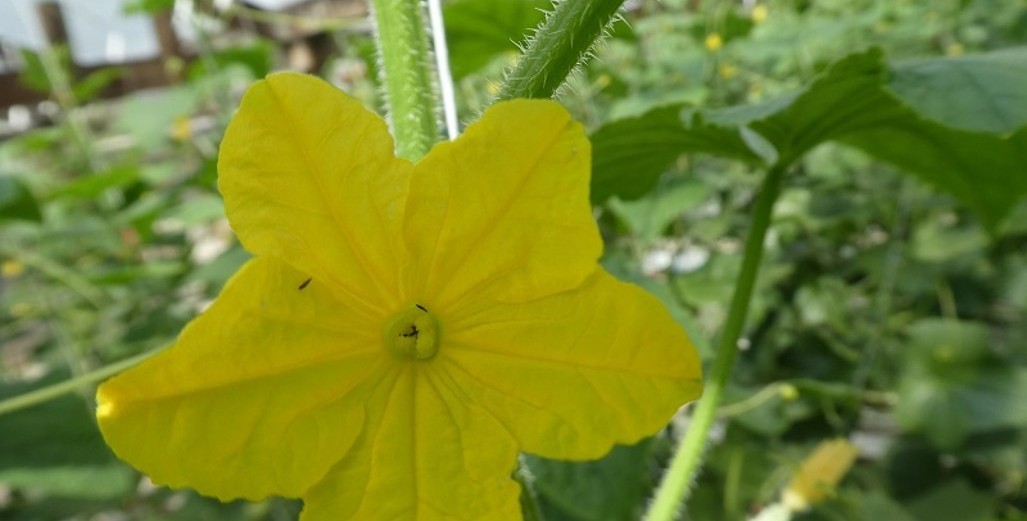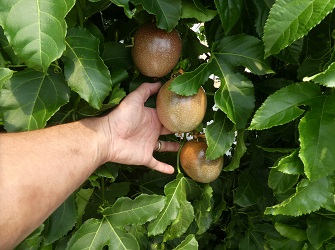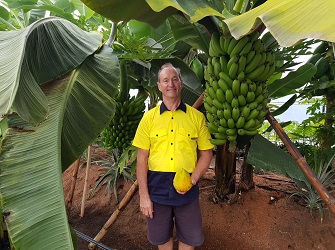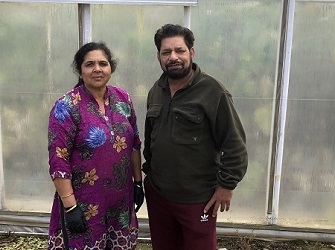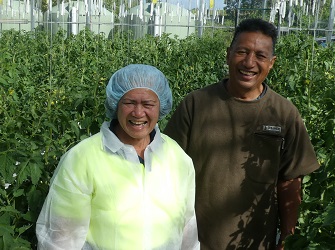Sign up here to subscribe to the Grower2grower Ezine. Every two weeks you will receive new articles, specific to the protected cropping industry, informing you of industry news and events straight to your inbox.
Aug 2024
MPI – decision to temporarily suspend all Imported Australian fresh Tomatoes the correct one.
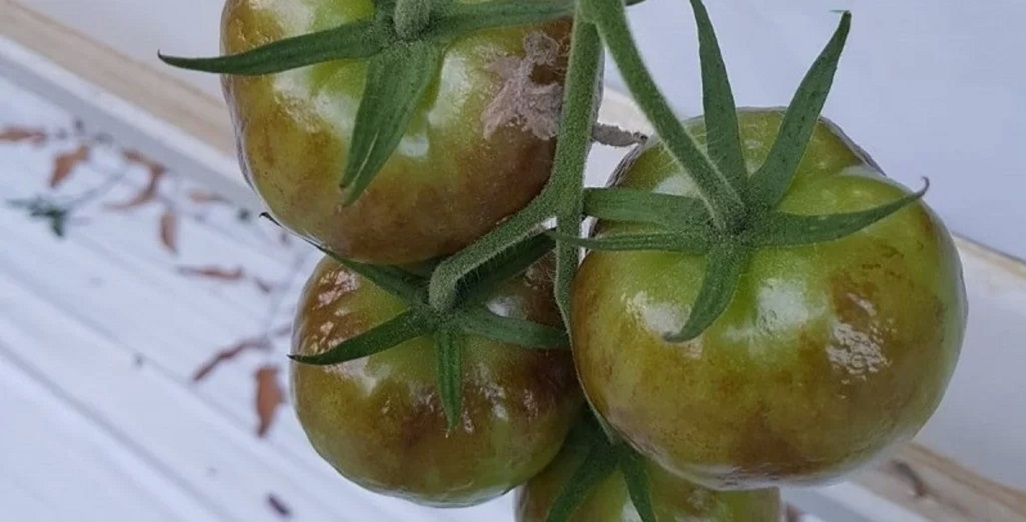
The decision to suspend all fresh tomato imports from Australia is a significant relief for New Zealand’s tomato growers. Given the risk posed by Tomato Brown Rugose Fruit Virus (ToBRFV)
Opinion by Stefan Vogrincic:
The decision to suspend all fresh tomato imports from Australia is a significant relief for New Zealand’s tomato growers. Given the risk posed by Tomato Brown Rugose Fruit Virus (ToBRFV), which can be quite destructive, this precautionary measure is crucial in protecting local crops and the livelihoods dependent on them. The vulnerability of New Zealand’s tomato industry, especially in the face of such a serious threat, underscores the importance of safeguarding against potential outbreaks to ensure job security and industry stability.
High Resistant Varieties:
The situation is challenging. The demand for ‘highly ’resistant seed stock, coupled with current availability, creates a tough situation for New Zealand growers. Even though the development of resistant cultivars is occurring, and a significant step forward has been made by major seed suppliers, the availability of these seeds means that growers are left in a precarious position.
How did ToBRFV make its way to Australia?
The uncertainty about the origin of the Tomato Brown Rugose Fruit Virus (ToBRFV) adds another layer of complexity to the situation. Given the rigorous testing procedures in place, it’s understandable that relying solely on imported seed as the source of the outbreak might be premature. The possibility of illegal seed imports, which could bypass official testing and quarantine measures, is indeed a serious concern.
The scenario highlights the need for:
- Enhanced Surveillance and Monitoring: Strengthening efforts to detect and prevent illegal seed imports and improving overall biosecurity measures.
- International Cooperation: Sharing information and collaborating with other countries to track the movement of plant pathogens and improve global biosecurity protocols.
- Research and Development: Investing in research to understand the virus better and develop more robust control measures, including faster production of resistant seed varieties.
- Education and Awareness: Raising awareness among growers and industry stakeholders about the risks of illegal seed and the importance of adhering to biosecurity protocols.
Addressing these areas can help in managing current risks and reducing the chances of future outbreaks.
The Other Possibility:
The possibility that ToBRFV was introduced to Australia through person-to-plant or equipment-to-plant contact is a valid concern. Since the virus can survive on surfaces and be transmitted through human activities and equipment, this route of transmission needs to be carefully considered
Given that ToBRFV can be transmitted through people and equipment, and can persist on surfaces like clothes and phones, biosecurity measures need to be very stringent. Here are a few additional strategies that could help mitigate the risk of transmission:
- Strict Hygiene Protocols: Implementing rigorous sanitation procedures for equipment, clothing, and personal items used in growing and handling tomatoes. This includes regular disinfection of surfaces and tools, as well as protocols for washing hands and changing clothes before entering tomato growing areas.
- Employee Training: Educating workers and growers about the virus’s transmission methods and the importance of following hygiene practices to prevent spread.
- Controlled Access: Limiting access to production areas and ensuring that anyone who enters adheres to strict biosecurity measures, such as changing into clean protective clothing and using sanitized tools.
- Regular Monitoring: Conducting frequent checks for signs of the virus and maintaining vigilance to quickly identify and address potential outbreaks.
- Quarantine Measures: Isolating new plants and equipment before introducing them into the main growing area to ensure they are free from the virus.
- Information Sharing: Encouraging the sharing of information and best practices between growers, researchers, and industry bodies to stay updated on the latest developments and strategies for managing the virus.
These measures can help reduce the risk of ToBRFV spreading and provide a more resilient approach to managing biosecurity threats in the industry.
The Good News for Consumers:
The seasonal influx of locally grown produce should help stabilize the market and potentially keep retail prices steady. We just need to keep the virus out.
Below Media Release Biosecurity NZ
Biosecurity New Zealand temporarily suspends all Australian imported tomatoes (Friday 23rd August 2024)
Biosecurity New Zealand has temporarily suspended all Australian tomato imports, to be reviewed in seven days, after the detection of tomato brown rugose fruit virus at two South Australian growing properties earlier this week.
“We met this afternoon with our counterparts in Australia, where they provided an update on their work to respond to the detection of the tomato virus,” says Biosecurity New Zealand deputy director general Stuart Anderson.
“Australia is taking steps to respond to the matter, including continuing to trace material. As this tracing work continues, and out of an abundance of caution, we are extending our restrictions by temporarily suspending imports of tomatoes from Australia. We will review this in seven days.
“This means temporary suspensions are now in place for tomato imports from all Australian states.”
Stuart Anderson says today’s decision builds on the urgent measures introduced by Biosecurity New Zealand earlier this week , which banned tomato imports from Australian states other than Queensland.
“All our imported tomatoes from Australia currently come from Queensland and not South Australia.
“So far tracing has not shown any affected material in Queensland, but we think it’s reasonable to be cautious while our counterparts continue their work.”
There is nothing to suggest the virus is here at present,” says Stuart Anderson.
“We’ll continue to work closely with New Zealand’s tomato sector.
“As always we ask growers to check their biosecurity practices and be vigilant and contact us on our pests and diseases hotline (0800 80 99 66) if they notice problems with their tomatoes.
“We’ll continue to closely monitor the situation in South Australia and continue to take any actions to protect New Zealand growers.”
The virus affects causes yellowing and deformity in the host plants but has no impact on human health.
For further information and general enquiries, call MPI on 0800 00 83 33 or email info@mpi.govt.nz
For media enquiries, contact the media team on 029 894 0328.

CLASSIFIED
Photo
Gallery
Subscribe to our E-Zine
More
From This Category
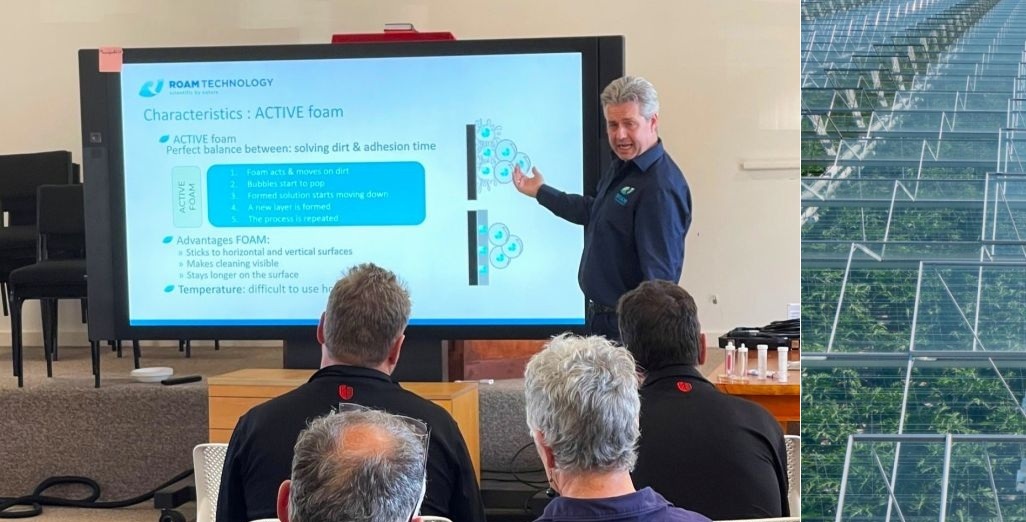
Roam presentation on hygiene protocols for greenhouses and biosecurity, Pukekohe, New Zealand
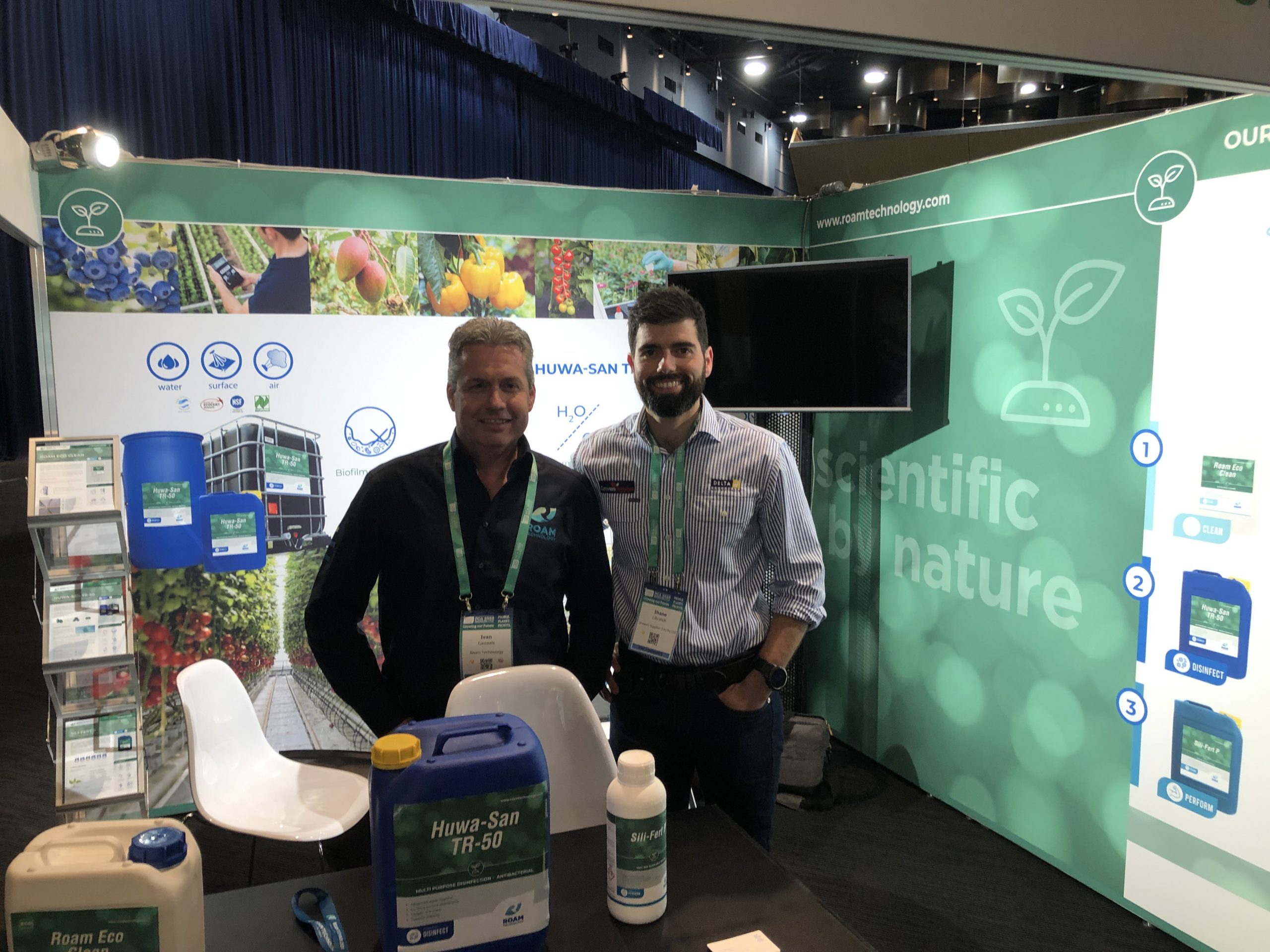
PUKEKOHE WORKSHOP 26th February: Strengthening Biosecurity to Prevent ToBRFV in New Zealand
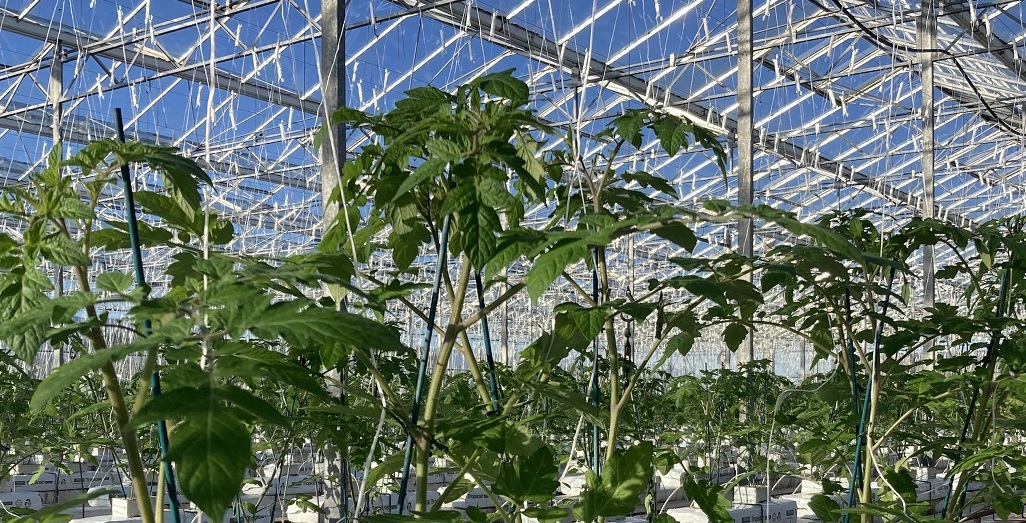
Tomato brown rugose fruit virus detected in Victoria: Concern for vulnerable New Zealand tomato growers

Céline De Neve Joins Agro Solutions Team in APAC Region
Vegetables by Bayer – ToBRFV Knowledge Centre











